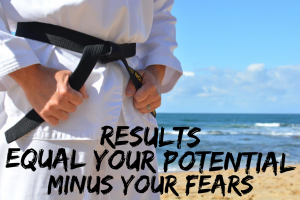
I am asked daily what I do, imagine an accountant everyday being asked, what do you do? how do you do it? what are your qualifications? what is the price? is it dangerous? will you make me do stupid things and my favourite… is it illegal?
I am not a sport psychologist, they have a different approach and as far as I understand without doing the ‘official training’, I am at a loss to understand how focusing on the past helps to achieve your future.
Many of my friends and connections are Sports Psychologists and we have some great discussions and I still leave scratching my head as to the approach that traditional psychology takes.
I thought I would help you understand psychology by quoting this directly. Below is the full link to 20 pages of ‘stuff’ to read and enjoy!
http://citeseerx.ist.psu.edu/viewdoc/download?doi=10.1.1.460.5437&rep=rep1&type=pdf
This below is a copy of a few paragraphs from page1…
Action-Theory Approach to Applied Sport Psychology THOMAS SCHACK and DIETER HACKFORT
“The action theory approach formulates a fundamental concept of actions in sport and thereby provides a consistent and plausible basis for explaining the diversity of phenomena in sport practice. The theoretical foundation and empirical evidence of the fundamental aspects of actions in sport should promote and support the practical work of sport psychologists.
Applied psychology has an inadequate theoretical foundation. The pure-research-oriented psychological disciplines (such as general psychology and developmental psychology) rely on different theoretical perspectives. One outcome of this has been a lack of any binding or fundamental theoretical approach in the applied disciplines (industrial psychology, clinical psychology, sport psychology, etc.). Consequently, most sport psychologists cultivate their own theoretical basis for their practical work. Frequently, they are not aware of this theoretical basis, refraining from communication and thus avoiding any possibility of change.”
Confused? Me too! And then you get into all the great diagrams that loop around and content, from such recent times, like 1905!
“ESSENTIAL ASSUMPTIONS FOR AN ACTION-THEORY APPROACH The action-theory approach has a number of different historical roots. These include Miller, Galanter, and Pribram’s (1960) book Plans and the Structure of Behaviour that broke away from behaviorist concepts and formulated preliminary ideas on the functional construction of action. Further roots are to be found in German (Ach, 1905; Lewin, 1926) and Russian psychology (Luria, 1978; Rubinstein, 1964; Vygotsky, 1978). In the applied disciplines, the actiontheory approach has been formulated most elaborately for industrial psychology (e.g., Hacker, 1998) and sport psychology (Hackfort, 1986, 2000; Hackfort & Munzert, 2005; Hackfort, Munzert, & Seiler, 2000; Nitsch, 1975, 1985, 2004; Schack, 1997, 2000).* We focus on applied sport psychology, and we start by enumerating the essential assumptions underlying an action-theory approach in this field:”
OK, so what is the Athlete’s Secret Weapon approach?
Who are you? Where do you want to go? What actions, behaviours and habits do we need to change to get you there? Then we spend 3-4 sessions over a month to get you to be behaving like the person you need to be to achieve what you wanted.
Have I gone back into the past? NO
Have I dug up all your childhood trauma? NO
Have I asked about your feelings? NO
Have I asked what you want to achieve? YES
Have I involved you in the discussion? YES
Have I outlined a logical approach? YES
Psychology certainly has benefits for certain sectors of the population, I find that the elite in sport and business I work with, are different. They want to perform better, they want to manage now, they are aiming at success, they want fast methods to help them become better. Read the psychology model again above and see if this is going to benefit a quick result.
Over the last 13 years and 8500 clients, I have worked with some of the finest athletes, entrepreneurs right through to kids with emotional issues, bedwetting and overweight people who have been physically and emotionally abused in the past.
One thing in common… well the 15 things in common are the fundamentals of the human mind that exist. They are always at play and never change. What changes is your awareness of these work to understand how your mind is doing EXACTLY what it is designed to do.
Once you understand these fundamentals, everything you do, have done or about to do, makes sense and now you simply apply these moving forward.
All this information is then applied at the deep level of your unconscious mind, bypassing the filters and barriers to protection you have created through past experience (fears) into a new and automatic action, reaction or habit. For this I use Hypnosis, NLP (Neuro Linguistic Programming) and fast track processes that are designed to re-wire you brain… instantly.
Generally, repetition is needed in psychology, it is a very conscious discussion and involves feelings and they block the movement ahead. Through repetition we can develop automatic responses like walking and driving. My question is why do you want to wait for change?
For the edge in your sport, I am the guy that 36 World Champions choose to get their head in the game.
Stuart Walter,
The Athlete’s Secret Weapon
Founder and CEO of the Elite Mindset Institute
